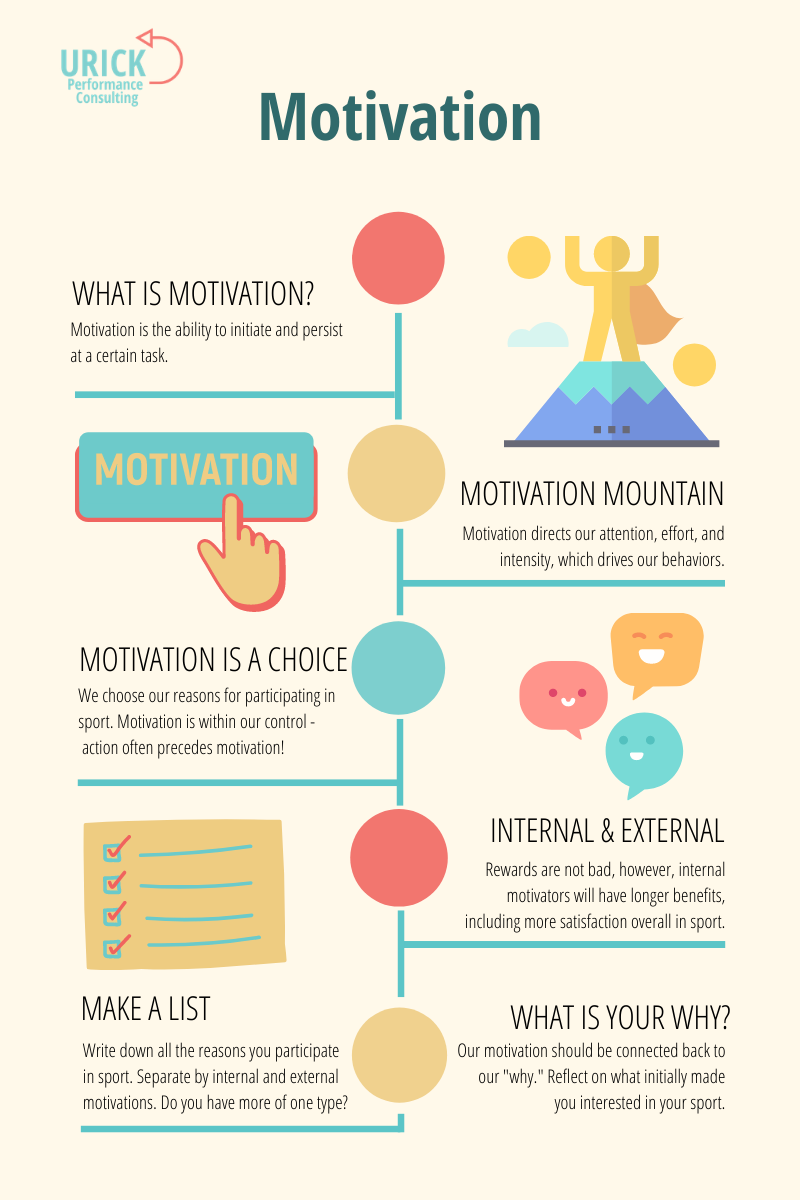Motivation can be a fickle thing with athletes. Oftentimes we rely upon the positive peak of motivation to drive us to new exercise behaviors, set scary-exciting goals, and tap into other areas of personal growth. But what happens when that mountain of motivation turns into an avalanche of adversity? Do you chalk it up to waning motivation? Does that feeling prevent you from taking action?
I’M JUST NOT MOTIVATED.
You’ve been there, right? (Yep, me too!)
What if I told you that motivation is a myth?
So, are you asking, “Mel, how do I stay motivated then if motivation doesn’t exist?”
Look, motivation and our motivators for doing something are very real. But action doesn’t and shouldn’t depend on it.
We need to tweak our understanding of what motivation is and isn’t. You do the thing without the feeling of being motivated. And this is often that place where we get stuck, thinking we need to feel a certain way ALL THE TIME to do or achieve anything. When we feel too tired. When the mid-workout fatigue kicks in. When our negative self-talk starts creeping. Our motivation needs to be connected to our bigger WHY.
But let me back up a bit.
What is motivation, anyway?
Motivation is the ability to initiate and persist at a task. Motivation directs our attention, effort, and intensity to which drives our behaviors of goal pursuit. Sometimes motivation is also the behavior we’re avoiding (and we don’t avoid things here!). We talk a lot in sport about what we can control – control the controllables – and motivation is the part of sport that you control. So while motivation directs our attention, effort, and intensity, we choose those motivating factors.
There are two types of motivation: Internal and External. Is it for accolades like awards, recognition, and placement? (Those are external motivators.) Or is it for the experience, for growth, to have fun? (These ones are the internal motivators.). Neither is inherently good or bad. BUT (this is a Big But, here), the research supports that having internal motivators will have longer-term benefits, including greater overall satisfaction in sport. If your focus lingers too long on external factors, you’re gonna burn out. Stop enjoying your sport. Hate showing up. Be the Party Pooper.
Do you see where the control piece comes in here? When thinking about some of the external reasons of why we do something, we also experience a lack of control. Sure, we could put forth our best effort – but we can’t also control the person competing next to us who is ALSO putting forth their best effort. We CAN control showing up every training day, building community and connection with our fellow athletes or teammates, and being present so that we can enjoy the heck out of our sport.
Why do you participate in sport?
Here are a few action steps to take:
- Make a list of the reasons why you participate in sport
- Separate that list into external and internal motivators
- Is one list bigger than the other?
- If it’s mostly external, think about some of the reasons you FIRST got into your sport. Do any of those reasons still exist for you? Sometimes connecting back to the beginning might bring out some more internal factors.
- Looking back at your list, which ones do you have control over?
We choose our WHY. And this is how we are in control of our motivation.
Want to talk through your motivation and connect deeper to your WHY? Let’s set up a 30-minute FREE chat!
